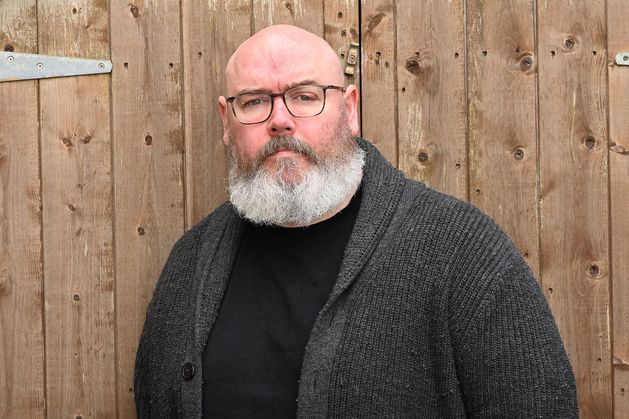O2 apologises for any distress caused to former employee with chronic pain and mobility issues
Eamon Bowen (40) worked for O2, which is owned by Telefonica Ltd, in Belfast and in the north west.
But his life changed after he was diagnosed in 2014 with Spondylolisthesis, a degenerative disc disease which causes him chronic pain, exhaustion, sleep and mobility issues.
He had to take periods of sick leave, after which he was referred to occupational health, who made various recommendations to help him back to work.
Mr Bowen was unhappy that these were not acted on, and took a disability discrimination case.
While it was settled with no admission of liability, O2 has apologised for any distress he experienced.
The Equality Commission for Northern Ireland, which supported the case, said Mr Bowen was keen to work and managed his condition, working from home during the pandemic.
Eamon Bowen
Mr Bowen returned to work in-store following lockdown in June 2020 but found it difficult as he spent most of his working day on his feet.
He took more sick leave, again being referred to occupational health — who made recommendations to help him work including a phased return to work, reduced working hours and use of a support chair on the shop floor.
But Mr Bowen said the recommendations weren’t implemented appropriately and he tried to discuss this with his employer. However, he felt he had no choice but to resign, leaving his job in November 2021.
He said: “I enjoyed my job, I wanted to work. Occupational health made recommendations time and time again to help me to return to and remain in work, but these were not fully implemented.
“In the end, without these supports and adjustments it became impossible for me to continue working.
“I believe their failure to fully implement occupational health’s recommendations and to talk to me about my needs as a disabled person cost me my job.
“I’m grateful to the Equality Commission for helping me to challenge how I was treated.”
Geraldine McGahey, chief commissioner at the Equality Commission, said employers must carefully consider all recommendations made by occupational health and communicate with affected staff to ensure their needs are understood.
“It’s also important that all staff, particularly line managers, know that the law says reasonable adjustments have to be considered.”
In settling the case, Telefonica apologised to Mr Bowen for the upset, distress and injury to feelings that he experienced.
The company also affirmed its commitment to the principles of equality in employment and ensuring they comply with equality law. They agreed to work with the commission to review policies, practices and procedures. An O2 spokesperson said: “As one of the UK’s largest businesses with a broad and diverse workforce, we have a range of measures in place to support employees who have a disability or specific needs, such as making layout changes for wheelchair users, hiring sign language interpreters for employees with hearing difficulties, and providing specialist equipment where appropriate.
“We have apologised to Mr Bowen for any distress caused in this case, and we are pleased to have mutually reached a settlement.”

